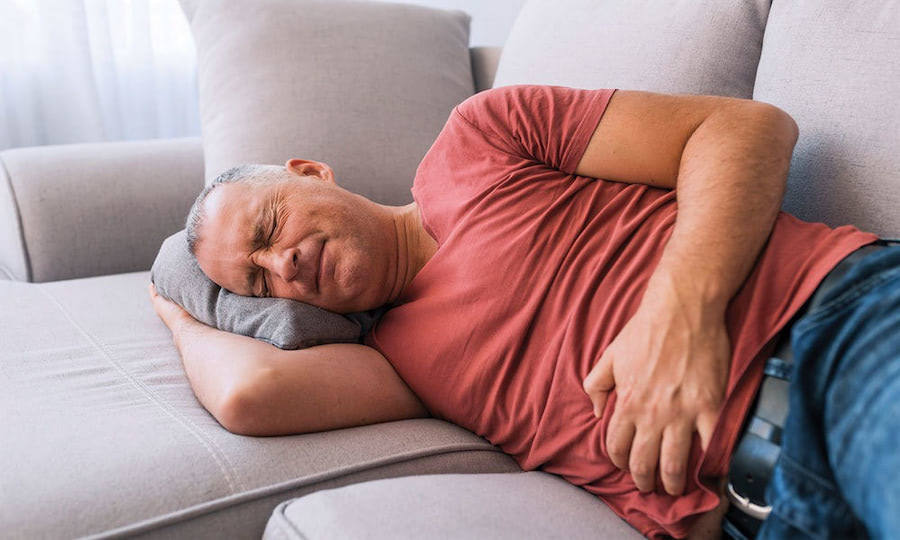Hemorrhoids are swollen veins around the rectum and anus. While they can be uncomfortable, bursting is a less common occurrence. Learn what to do if you suspect a burst hemorrhoid and find relief for a speedy recovery.
Hemorrhoids – Unwelcome Guests and the Potential for Bursting
Hemorrhoids, those swollen veins around the rectum and anus, are a frequent source of discomfort for many people. They can cause a range of symptoms, including pain, bleeding, and difficulty passing stool. But in some cases, a hemorrhoid might take a more dramatic turn and burst.
While not a common occurrence, a burst hemorrhoid can be a startling and concerning experience. This blog post dives into the world of hemorrhoid bursting, explaining what happens, the signs to watch out for, and the best course of action for recovery and preventing future episodes.
Understanding Burst Hemorrhoids: When Internal Pressure Builds
Hemorrhoids develop when there's increased pressure in the veins around the rectum and anus. This pressure can be caused by various factors, including straining during bowel movements, pregnancy, and chronic constipation.
There are two main types of hemorrhoids:
- Internal Hemorrhoids: These develop inside the rectum.
- External Hemorrhoids: These form under the skin around the anus.
A burst hemorrhoid typically occurs when a blood clot forms inside an internal hemorrhoid (thrombosed hemorrhoid). This clot can increase pressure within the hemorrhoid, eventually causing it to burst.
Signs and Symptoms: Recognizing a Burst Hemorrhoid
If you suspect a hemorrhoid has burst, here are some key signs and symptoms to watch out for:
- Sudden Relief: A burst hemorrhoid might initially cause a feeling of sudden relief due to the release of pressure.
- Bleeding: This is the most common symptom of a burst hemorrhoid. You might notice bright red blood on toilet paper or in the stool.
- Pain: While the initial burst might provide some relief, the area may become sore and tender afterwards.
- Swelling: The surrounding tissue might become inflamed and swollen.
Seeking Relief: What to Do After a Hemorrhoid Bursts
If you experience symptoms suggestive of a burst hemorrhoid, here's how to manage the situation:
- Sitz Baths: Warm sitz baths, where you soak your lower body in warm water for 10-15 minutes several times a day, can soothe the irritated area and promote healing.
- Pain Relief: Over-the-counter pain relievers like acetaminophen or ibuprofen can help manage discomfort.
- Over-the-counter Hemorrhoid Creams: Topical creams containing ingredients like witch hazel or lidocaine can provide additional relief from itching and irritation.
- Fiber-Rich Diet: Consuming plenty of fiber ensures softer stools and reduces straining during bowel movements, aiding the healing process.
- Hydration: Drinking adequate fluids throughout the day keeps stools soft and prevents constipation.
- Loose-Fitting Clothing: Opt for loose-fitting cotton underwear to allow for proper ventilation and prevent further irritation.
Seeking Medical Attention: When Professional Help is Needed
While home remedies can often manage a burst hemorrhoid, there are situations where seeking medical attention is crucial:
- Severe Bleeding: If the bleeding is heavy or doesn't stop after a day or two, consult a doctor.
- Prolonged Pain: If the pain persists or worsens after a few days of home care, see a doctor for further evaluation.
- Fever: A fever along with other symptoms might indicate an infection, requiring medical attention.
- Concerns and Questions: If you have any concerns or questions about your symptoms, don't hesitate to consult a doctor.
Preventing Future Flare-Ups: Keeping Hemorrhoids at Bay
The good news is that there are ways to prevent hemorrhoids altogether, thereby reducing the risk of them bursting:
- High-Fiber Diet: As mentioned earlier, a diet rich in fiber plays a key role in preventing hemorrhoids. Fiber promotes softer stools and reduces straining during bowel movements.
- Regular Exercise: Aim for at least 30 minutes of moderate-intensity exercise most days of the week. Exercise helps maintain bowel regularity and reduces pressure on the veins in the rectum.
- Healthy Weight Management: Maintaining a healthy weight reduces pressure on the veins in the rectum, lowering the risk of hemorrhoids.

